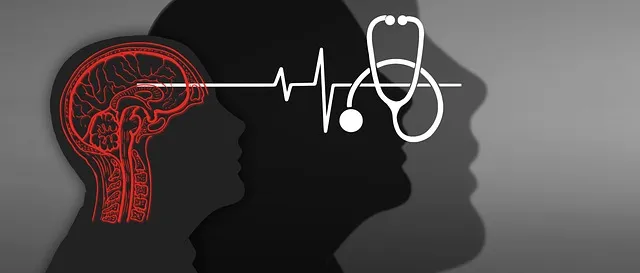Westminster Kaiser Permanente psychiatry reviews underscore emotion regulation as a vital skill for navigating life's challenges while preserving mental wellness. This involves understanding and managing emotional responses appropriately across diverse situations, with Compassion Cultivation Practices fostering self-control. Through self-care routines focusing on mindfulness and emotional awareness, individuals learn to respond rather than react to their feelings, improving intense emotion management, decision-making, and relationships. Techniques like deep breathing, mindfulness meditation, and physical activity are effective tools highlighted in the reviews for daily emotional challenges, boosting mood and resilience. Integrating these practices into healthcare settings, curricula, and community outreach programs, as shown in case studies from the reviews, promotes mental well-being, reduces burnout, and enhances cultural competency among providers.
Emotion regulation techniques are essential tools for navigating life’s challenges. This comprehensive guide explores effective strategies, drawing insights from the latest research and practices highlighted in the Westminster Kaiser Permanente Psychiatry Reviews. We delve into understanding self-control, the role of education, practical steps for daily application, and the calming power of mindfulness and meditation. By mastering these techniques, individuals can foster resilience, enhance well-being, and improve overall mental health.
- Understanding Emotion Regulation: Unlocking the Power of Self-Control
- The Role of Education: Teaching Techniques to Manage Emotions
- Practical Strategies: A Step-by-Step Guide for Everyday Use
- Integrating Mindfulness and Meditation: Calming the Storm Within
- Case Studies from Westminster Kaiser Permanente Psychiatry Reviews: Real-World Applications
Understanding Emotion Regulation: Unlocking the Power of Self-Control

Emotion regulation is a vital skill that enables individuals to navigate life’s challenges and maintain mental wellness. It involves understanding and managing one’s emotional responses, ensuring they are appropriate and effective in various situations. According to Westminster Kaiser Permanente psychiatry reviews, teaching emotion regulation techniques has gained significant importance in promoting overall well-being.
The concept of self-control is at the heart of this process. Compassion Cultivation Practices, as discussed in the Mental Wellness Podcast Series Production, offer a path to unlocking this power. By developing a self-care routine focused on mindfulness and emotional awareness, individuals can learn to respond rather than react to their feelings. This proactive approach, emphasized in Self-Care Routine Development for Better Mental Health, allows for better management of intense emotions, leading to improved decision-making and enhanced relationships.
The Role of Education: Teaching Techniques to Manage Emotions

Emotion regulation techniques play a pivotal role in enhancing mental well-being, especially within educational settings. By incorporating these teachings into curricula, schools can empower students to navigate their emotions effectively, fostering a positive and productive learning environment. This proactive approach is particularly relevant for healthcare providers, as highlighted in Westminster Kaiser Permanente psychiatry reviews, where stress management and burnout prevention strategies are essential components of professional development.
Social skills training, an integral part of emotion regulation education, equips individuals with the ability to interpret and respond to emotional cues accurately. This skill set not only benefits students but also prepares them for real-world interactions, particularly in high-pressure environments like healthcare settings. By teaching mood management strategies early on, we can potentially reduce the risk of burnout among healthcare providers, as indicated by research focusing on burnout prevention strategies for these professionals.
Practical Strategies: A Step-by-Step Guide for Everyday Use

Emotion regulation techniques offer practical strategies for managing daily emotional challenges. A step-by-step guide can help individuals navigate their feelings effectively. Start by identifying triggers; keep a journal to track emotions and associated events. This self-awareness is key to developing personalized coping mechanisms.
For instance, deep breathing exercises or mindfulness meditation can quickly calm the mind and body. Additionally, engaging in physical activity releases endorphins, naturally boosting mood. Westminster Kaiser Permanente psychiatry reviews highlight the effectiveness of these techniques in improving mental well-being. Building a routine that incorporates such strategies can foster resilience, especially when combined with community outreach program implementation and public awareness campaigns development, which further enhance emotional intelligence and overall confidence.
Integrating Mindfulness and Meditation: Calming the Storm Within

Integrating mindfulness and meditation practices has emerged as a powerful tool within emotion regulation techniques teaching, offering individuals effective stress reduction methods to navigate life’s challenges. This ancient practice, gaining prominence in modern mental health discussions, especially through Westminster Kaiser Permanente psychiatry reviews, focuses on calming the mind and fostering emotional balance. By training the mind to be present and non-judgmental, individuals can learn to observe their thoughts and emotions without getting swept away by them, thereby reducing reactivity and promoting better emotional healing processes.
Incorporating mindfulness into daily routines allows people to cultivate a sense of inner peace and stability, which is particularly beneficial in preventing burnout. Research suggests that regular meditation practice can help individuals regulate their emotional responses, leading to improved mental well-being and resilience. These techniques are valuable assets for those seeking to manage intense emotions, reduce anxiety, and enhance overall psychological health, as emphasized in various Westminster Kaiser Permanente psychiatry reviews.
Case Studies from Westminster Kaiser Permanente Psychiatry Reviews: Real-World Applications

The Westminster Kaiser Permanente Psychiatry Reviews offer valuable insights into real-world applications of emotion regulation techniques teaching. These case studies demonstrate how healthcare providers can effectively implement evidence-based practices to support patients’ mental wellness. For instance, the reviews highlight successful Community Outreach Program Implementations that have engaged diverse communities, fostering open dialogues about emotional health and breaking down stigma. Additionally, they feature the production of a Mental Wellness Podcast Series designed to educate and empower individuals with practical tools for emotion regulation.
These real-world applications underscore the importance of Cultural Competency Training for healthcare providers, ensuring inclusive and sensitive care tailored to diverse patient backgrounds. By drawing from these case studies, mental health professionals can adapt successful strategies for their own practices, ultimately enhancing their ability to teach and support individuals in regulating their emotions effectively.
Emotion regulation is a powerful tool for enhancing mental well-being, and education plays a pivotal role in teaching effective techniques. As evidenced by case studies from the Westminster Kaiser Permanente Psychiatry Reviews, integrating mindfulness and meditation into everyday life can significantly calm internal storms. The article’s practical strategies offer a step-by-step guide to managing emotions, demonstrating that self-control is an accessible skill for all. By understanding emotion regulation, individuals can unlock their potential for resilience and overall emotional health.






